Life
Sign up for our newsletter
We summarize the week's scientific breakthroughs every Thursday.
-
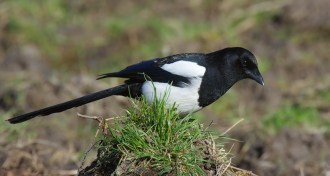 Animals
AnimalsMagpies don’t like shiny things
Magpies’ reputation as thieving birds that will steal shiny objects is all wrong, a new study finds.
-
 Chemistry
ChemistryLiquid salts break through armored bacteria on skin
Compounds called ionic liquids can penetrate bacterial biofilms on skin to deliver antibiotics to potentially life-threatening infections.
By Sam Lemonick -
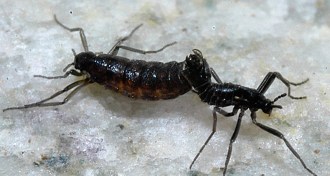 Animals
AnimalsAntarctic midge sports tiniest insect genome
Antarctic midge‘s genetic minimalism achieved by skipping a lot of repetitive stretches.
By Susan Milius -
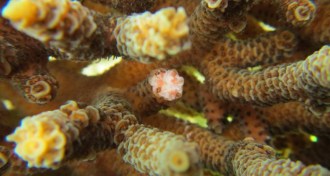 Animals
AnimalsCorals, fish know bad reefs by their whiff
Compounds drifting off certain overgrown seaweeds discourage young corals and fish from settling in failing reefs.
By Susan Milius -
 Psychology
PsychologyHypothesis on evolution of PMS attracts hostility
A new hypothesis states that PMS is evolutionarily useful for making women leave an infertile partnership. But other scientists question whether the hypothesis is reasonable or, in fact, even necessary.
-
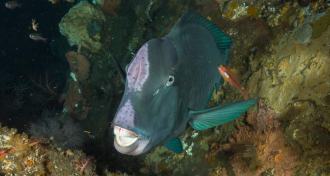 Animals
AnimalsBumphead parrot fish declare their arrival with a crunch
Months of swimming with the coral-biter bumpheads exposes the animal’s extreme digestion and also a conservation dilemma.
By Susan Milius -
 Life
LifeNew gut-dwelling virus is surprisingly common
It’s not clear yet whether the bacteriophage crAssphage, found in people’s intestines, has any health effects.
-

-
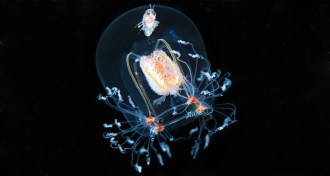 Animals
AnimalsSeeing past the jellyfish sting
Jellies don’t get nearly as much love as their cousins, the corals, but they deserve credit for providing homes to some creatures, dinner to others and more. They’re an integral part of the oceans.
By Susan Milius -
 Life
LifeTest drug stops Marburg virus in monkeys
Using a nano-size piece of RNA, scientists have stopped Marburg virus in monkeys.
-
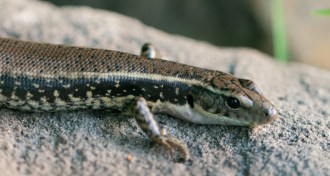 Animals
AnimalsThese lizards may be able to learn from each other
An experiment with skinks provides the first evidence of social learning in lizards.
-
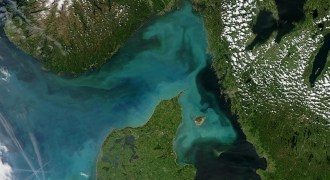 Oceans
OceansViruses might tame some algal blooms
The rapid demise of a giant, carbon-spewing algal bloom points to the influence of viral wranglers.